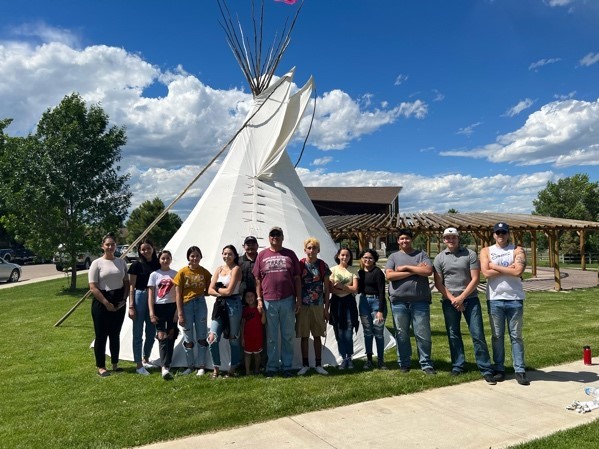The importance of culturally appropriate medical care is undisputed. In Indian Country, where there are limited Indigenous providers—in part due to high turnover in rural locations—timely, culturally appropriate care remains a significant challenge. Unfortunately, there is no quick fix, which is why Dr. Teresa Brockie and her team use a long-term strategy, focused on the promise and passion of Native youth. The Pathways to Nursing, Public Health and STEM Program for Aaniiih and Nakoda High School Scholars, renamed the Young Medicine Movement (YMM) by program scholars, introduces health science careers and provides mentorship by Indigenous researchers and clinicians to Fort Belknap scholars.
Program Overview
The YMM is located on the Fort Belknap Indian Reservation and was created to inspire Aaniiih and Nakoda youth to become leaders in their community and help bolster a new generation of educated Aaniiih and Nakoda Peoples. The program was launched in June 2022 and is led by Johns Hopkins School of Nursing Assistant Professor, Dr. Teresa Brockie, and Northern Arizona University Assistant Professor, Dr. Naomi Lee, in partnership with the Fort Belknap Tribal Health Department, and Aaniiih Nakoda College (ANC). Scholars learn about STEM, public health, and nursing careers as well as key chemistry, biology, and cultural skills. Cultural teachings, provided by community leaders and Elders, are a core aspect of the program. Indigenous experts providing mentorship and information about their fields while connecting their journey to their Indigenous culture teach the weekly themed curriculum. Students’ tribal knowledge is enriched through involvement of tribal Elders, community members, and educators that give insight into the past so scholars can look to the future. YMM utilizes this model and focuses on mentorship to develop leaders that will address and empower their own communities through traditional epistemologies.
Program Staff
Supported by funding from the Kennedy Krieger Institute, we hired three Research Assistants to provide instrumental support to the program and mentorship to high school scholars. Additionally, the Program Director provided onsite support each day, created, and delivered many lessons to scholars. These four were crucial to the success of YMM, sharing openly with the students at every turn—the importance of mentorship in their educational journeys as Indigenous scholars, the role of community, and their career goals. Eleesha, Teeah, Truth, and Bobby shared reflections on their education journey and experience as mentors in the YMM.
Eleesha Bell
“My name is Eleesha Bell, I grew up in the Lodgepole community of the Fort Belknap Indian Reservation in Montana, which is where my family originates. Later, my dad, siblings, and I moved to the Agency and then eventually to Harlem. Growing up, my grandma and dad always told me that I was meant to be a nurse and provide care to the people in our community. This encouraged me to become a Certified Nursing Assistant after graduating high school in 2018, so that I could gain experience in the healthcare field. In 2019, I started obtaining the prerequisites and credits needed to apply for ANC’s Grow Our Own Nursing Program. I was accepted into ANC’s nursing program and graduated in the 2022 cohort with my Associates in Science of Nursing Degree. I hope to continue my education and become a Nurse Practitioner. During the program I gained experience in collecting and analyzing data for Dr. Brockie’s Youth Suicide Study on the Fort Belknap Indian Reservation. I also facilitated panel discussions and mentored YMM scholars.”
Teeah Roberts
“My name is Teeah Roberts, I grew up in Hays which is on the Fort Belknap Reservation in Montana. I completed an Associates of Science in Allied Health from ANC and a Bachelor of Science in Health Promotion from Montana State University – Northern and have been working in the healthcare field since 2017. I plan to continue a career in healthcare and become a Nurse Anesthetist. As an RA I had the opportunity to interact and mentor scholars, facilitate discussions and interact with guest speakers/panelists via zoom, and gained experience with data collection from Dr. Brockie’s Youth Suicide Study on the Fort Belknap Indian Reservation.”
Truth Brockie
“My name is Truth Brockie, and I am from the Fort Belknap Indian Reservation located in North Central Montana. I have resided on Fort Belknap throughout my high school career. I would either spend my summers off at summer enrichment programs or be working a job to keep myself busy. I am currently studying nursing at Montana State University in Bozeman. As an RA I enjoyed the opportunity to interact and mentor the scholars of the YMM and working with panelists and guest speakers. I also gained experience in collecting and analyzing data for Dr. Brockie’s Youth Suicide Study on the Fort Belknap Indian Reservation.”
Bobby Pourier II
“My name is Bobby Pourier and I come from the Pine Ridge Indian Reservation in South Dakota. I represent the Pourier and Big Crow families. My mother was involved in health research for 20 years as I was growing up. I have always been aware of the ways in which the world around me could be better, and through my education, I have been able to identify the reasons for such inequities. I work to strengthen the communities in which I live through youth empowerment and education via our cultural knowledge and ways of existing with the world. As the program director, I worked with scholars and research assistants to develop their skills and goals for the future.”
Overview of Seven-Week Curriculum
Week 1 – Career Development, Planning for the Future, & Cultural Foundation Building
Scholars developed a set of norms to guide their time in the program. We worked together to understand our cultural and career goals and made time to think about how we could intersect those two areas for the betterment of our communities. The key cultural activity to kick things off was learning to set up a tipi!
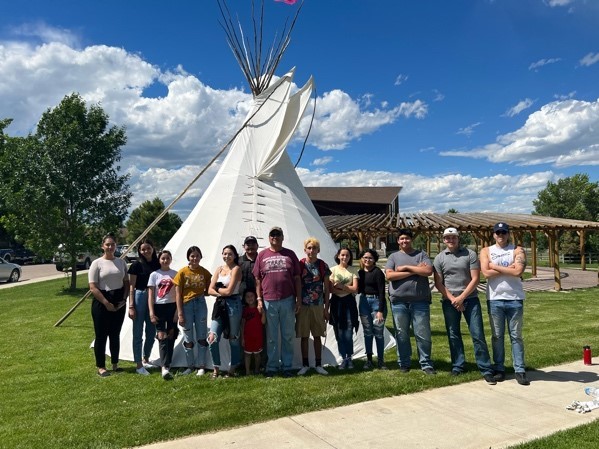
Week 2 & 3 – Chemistry and Biology
Dr. Naomi Lee led chemistry and biology lectures and labs. Our scholars heard from a panel of chemistry researchers on career pathways and mentorship. Scholars also visited the buffalo and collected feces samples for scientific analysis.
Week 4 – Nursing
This week was chock full of lab and simulation activities whereby scholars learned transferrable nursing skills and the importance of nursing in Native American communities. Scholars also learned from a panel of Fort Belknap Community Public Health Nurses about the important work they do in the community.
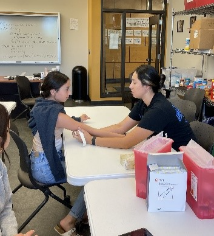

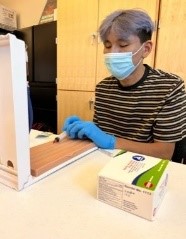
Week 5 – Public Health
Scholars learned about public health rooted in Indigenous traditions and methodologies from various Indigenous public health experts. A panel of Indigenous public health experts talked about their research and career journeys.
Week 6 – Building Resilience
Jillene Joseph, Executive Director of the Native Wellness Institute, guided the scholars through various wellness-related activities to boost self-esteem and self-care as a pathway to mitigating mental health challenges.
Week 7 – Planning for Success
Our final week focused on career readiness, sharing progress on goals, and reflecting on actionable next steps for scholars’ personal journeys. The amazing Research Assistants each gave a reflection on their paths and offered Q&A sessions with the students—underscoring the importance of seeking out mentorship. We held a community meal where the scholars presented their final posters for family and community members.

Phinamaya (Nakoda), Gineehayaan (Aaniiihnen) — Thank you!
We would like to thank all the partners, panelists, guest speakers, and community members who participated in the Young Medicine Movement. Your knowledge, skills, wisdom, time and effort are greatly appreciated and will have a long lasting and positive impact on the scholars, and in turn, the Fort Belknap community.
About the Authors:

Truth Brockie – Research Assistant
Truth is an Aaniiih and Dene’ man from Fort Belknap, Montana. He is currently a student at Montana State University in Bozeman, who is majoring in Nursing, and a Research Assistant at Johns Hopkins School of Nursing to Dr. Teresa Brockie.
Teeah Roberts – Research Assistant
Teeah is an Aaniiih woman from Fort Belknap Indian Reservation, Montana. She obtained an Associates degree in Allied Heath at Aaniiih Nakoda College, and a Bachelor of Science in Health Promotion. She has been working in healthcare since 2017 and is currently beginning her journey in the nursing profession and as a Research Assistant at Johns Hopkins School of Nursing to Dr. Teresa Brockie.
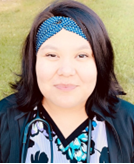
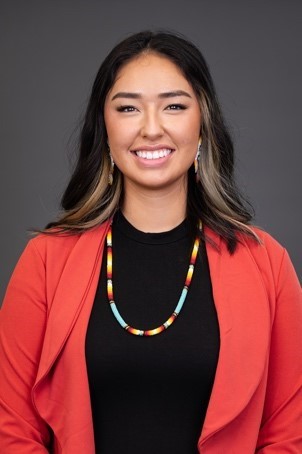
Eleesha Bell – Research Assistant
Eleesha is an Aaniih and Nakoda woman from Fort Belknap, Montana. She is a recent graduate of the Aaniiih Nakoda Colleges Grow Our Own Nursing program 2022 Cohort. She is currently studying to take her NCLEX-RN exam while also working as a Research Assistant at the Johns Hopkins School of Nursing to Dr. Teresa Brockie.
Bobby Pourier II – Program Director
Bobby is Oglala Lakota from Pine Ridge, South Dakota. He is a recent graduate from Yale University where he obtained a Bachelor of Science degree in Psychology. He is interested in conducting community interventions to address the lasting impacts of the colonization of Indigenous peoples. He has been a teacher and counselor on the Pine Ridge Indian Reservation for the past two years and is looking forward to applying to PhD programs regarding community health and healing.
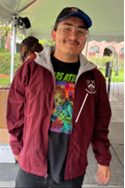

Ellie Decker
Ellie Decker works as a Research Program Manager at the Johns Hopkins School of Nursing on research collaborations with the Fort Peck and Fort Belknap Tribes, led by Dr. Teresa Brockie. Her work focuses on developing and implementing interventions to promote wellness and decrease the risk of suicide using community-based research methods. She is passionate about improving access to mental health care, particularly for mothers and children. Ellie has a Bachelor of Science degree in Psychology from the University of Minnesota and a Master of Science in Public Health degree from the Johns Hopkins School of Public Health.
Mina Kazemi
Mina Kazemi works as a Research Program Coordinator at Johns Hopkins University School of Nursing coordinating mental health research and programming with and for Indigenous youth at Fort Belknap. She enjoys learning from community and supporting research, programming, and capacity building opportunities that are respectful, collaborative, and relational. She obtained her HBSc in Global Health with minors in African Studies and Anthropology from the University of Toronto and a Master of Science in Public Health from the London School of Hygiene and Tropical Medicine. Mina Kazemi is passionate about health equity, structural determinants of health, and community driven approaches to research.
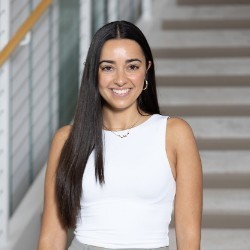
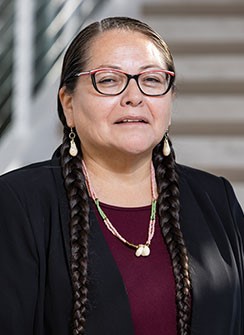
Teresa Brockie
Teresa Brockie, PhD, RN, FAAN, is an Assistant Professor at Johns Hopkins School of Nursing and Associate Scientist in the Johns Hopkins Bloomberg School of Public Health Center for American Indian Health. She represents the Frozen Clan as a member of the White Clay Nation (A’aninin) from the Fort Belknap Reservation in rural Montana. Her research focuses on achieving health equity through community-based prevention and intervention of suicide, trauma, and adverse childhood experiences among vulnerable, reservation-based populations.
See more On The Pulse Content:
